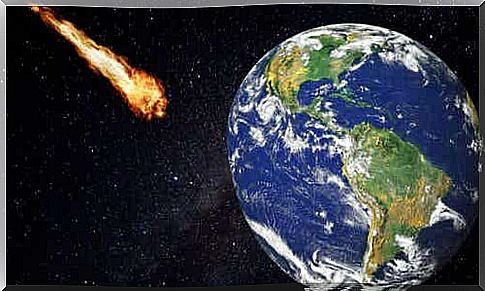Preppers Are Prepared For All Kinds Of Disasters

What would you do if your city erupted in violent riots? Do you know how to act in the face of a nuclear disaster? How would you react if a solar storm came and the whole electrical system, even the technology, collapsed? People will undoubtedly not be prepared for these problems. However, it does not pose a problem for a very specific group in society: preppers.
We dare say that most people are not aware of existing publications on how to survive various disasters. On Amazon, for example, you can find up to 300 books about the most incredible disasters and how to deal with them. Food, bunker construction, mental preparation. These topics are growing in popularity, but they have been of great interest for many years.
Let’s look at this with an example. In 2012, National Geographic made a successful documentary about preppers (individuals or groups of people preparing daily for the arrival of a disaster). At that time, everyone could see that people are constantly afraid of the arrival of a great catastrophe. The peculiarity here is that some people make this reality a lifestyle, while others simply do not worry about it.
The arrival of a pandemic caused many people to become a prepper overnight. Behind them is a whole culture and a social movement that is worth analyzing. Let’s take a look.
Are you prepared for what might happen?
The Prepper phenomenon is by no means something new. Think, for example, of the anguish people experienced around the world between 1947 and 1991 with the Cold War. When the fear of a possible nuclear catastrophe is over , it will give way to other concerns in the new millennium. We can say that this transition from the wake of the Cold War to the time of modernity came with the effect of the year 2000 or Y2K. At that moment, another much more sophisticated collective began to emerge.
Preppers have grown in number and have started using various technologies, forums and internet groups to exchange information. During this time, several incidents have taken place. As a result, it has encouraged even more people to join this group. For example, natural disasters, terrorist attacks, fears of climate change and arguably the most shocking of them all: the current pandemic.
Living life oriented towards the idea that many more disasters can happen at any time can make you believe that life is nothing but constant anguish. However, that is not the case. The simple fact of knowing how to act in the most unfavorable situations gives them security and a sense of security.

Preppers: How are they?
Preppers seem to live a normal life. They study, work, have families and hobbies. However, many of them have something in common, having gone through a complex experience that changed their way of being.
After being exposed to a natural disaster or after experiencing a power outage that has lasted for hours or days, they wonder how they could be more prepared if it were to happen again. Then they go online and discover the concept of preppers and everything behind it. It’s like starting a new religion, a survival strategy, a new way of seeing and understanding the world. Let’s dive deeper.
Preppers: Rational people far removed from conspiracy theories
You can think of those who are oriented to prepare for a disaster like the classic lone wolves who love conspiracy theories. On the contrary.
- Preppers are men and women between the ages of 25 and 45 who like culture, social events and who live in urban areas.
- They do not believe in conspiracy theories.
- In groups and forums of preppers it is forbidden to talk about politics.
- They are aware of the shortcomings of the system for preparing for any disaster, whether it is health or environmental (or something else for that matter).
Bradley Garrett, a social geographer at University College Dublin and author of the book Bunker: Building for the End Times, estimates that there are around 20 million preppers worldwide. And the number continues to grow.
Prepared for all kinds of disasters: The desire for security in a time marked by uncertainty
This group is very aware that no one knows 100% how to act in the face of a disaster. Of course, we do not know what kind of events climate change can cause. We also do not know if the future will lead to another type of virus, or what it will lead to if the bees disappear. Some say, a huge disaster.
To reduce uncertainty and anxiety, preppers seek to prepare in the most varied ways for any scenario. Although they do not know what may happen in the coming years, it can be very helpful to develop basic action strategies.
For example, this group of people already had enough face masks to protect themselves from a virus in a possible pandemic.

How do preps prepare?
Some have bunkers. However, a large proportion of them live in urban areas where it is not easy to construct such proportions. In general, they prepare as follows:
- They report their preparations in forums under the following tag: ready for four to six weeks. This designation indicates the amount of food stored and the duration.
- They know which foods to choose to meet all their basic nutritional needs.
- Many people grow their own vegetables.
- They exchange information all the time.
- A good number of them are people with higher education: medicine, engineering, physics, etc.
- They are mentally preparing to face adversity.
- They learn new skills. Water purification techniques, preparation of electrical appliances without access to the electrical network, basic medical treatment, etc.
In short, while this topic may be strange to some, it is a fact we cannot ignore. Disasters are part of our immediate reality. Being prepared for this is not wrong, it is actually normal. The problem, of course, is to turn this unrest into a way of life.









